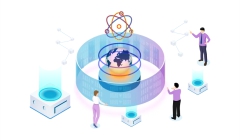
With the world being data-driven nowadays, there is an unprecedented demand for data science professionals in every industry. Working professionals seek to move into data science to advance their careers, gain a competitive advantage, or pursue a passion for analytics and technology. But with so many options around, finding the best data science course for working professionals is a daunting task.
This complete guide will enable you to know what exactly makes a data science course best suited for working professionals, which aspects to consider, and how to pick the appropriate route to adopt to become a high-flying data science professional.
Why Working Professionals Prefer Data Science
Essential Features to Consider in a Data Science Course for Professionals
While choosing a course, working professionals need to look for flexibility, relevance, and acceptance in the industry. The following are the essential aspects to consider:
Flexible Timings: Evening, weekend, or self-paced programs
Comprehensive Curriculum: Should include Python, Machine Learning, Statistics, SQL, Big Data, Deep Learning, etc.
Real-Life Projects: Hands-on exposure is essential to implement theoretical learnings
Certification: Should give a recognized certificate after completion
Placement Support: Resume-building help, interview preparation, and job placement support
Mentorship: Counsel by seasoned data scientists or industry professionals
Affordability: Course charges that are worth the value and assistance provided
Learning Mode: Online courses are best for hectic schedules
Community Access: Peer support and networking with fellow students
Current Content: Curriculum based on today's industry trends and tools
Why Select Data Science as a Working Professional?
Numerous mid-career professionals from various fields such as software development, finance, HR, marketing, and operations are now opting for data science to secure their futures. Here's why:
1. Career Advancement & Salary Boost
Data Science provides lucrative job roles with designations such as:
2. Cross-Domain Applications
Even if you're not technically inclined, your knowledge of Excel or even your marketing background can make a difference in interpreting data and solving actual business issues.
3. Remote Work Opportunities
Being tech-driven, the industry easily supports remote job opportunities and freelance work around the world.
4. Job Security & Relevance
As AI and automation become the core of all businesses, data science guarantees a future-proof skillset.
Skills Working Professionals Must Learn in Data Science
Prior to joining any course, professionals must evaluate the requirement for skills. Here's a list of required skills for data scientist aspirants:
Technical Skills
Programming: Python, R
Data Handling: SQL, Excel, Pandas
Statistics & Probability: Descriptive and inferential statistics
Data Visualization: Power BI, Tableau, Matplotlib, Seaborn
Machine Learning: Supervised and unsupervised algorithms
Deep Learning: Neural networks, TensorFlow, Keras
Big Data Technologies: Hadoop, Spark (for advanced learners)
Cloud Platforms: AWS, Azure, GCP basics
Soft Skills
Professional's Optimal Learning Modes
1. Online Instructor-Led Courses
Live weekend/evening classes with sessions clearing doubts. Great for busy professionals.
2. Self-Paced Courses
Pre-recorded videos, quizzes, and assignments that you can complete at your own pace. Great for students who work independently.
3. Blended Learning
Mix of live sessions and recorded content, providing flexibility with the guidance of the instructor.
4. Bootcamps
6-12 weeks of short-term intensive programs that learn major points quickly. Great for learning faster.
How to Plan Your Data Science Journey as a Working Professional
Step-by-Step Roadmap:
Assess Your Current Skills: Identify gaps in technical and analytical skills.
Research Courses: Focus on structured, job-oriented programs with practical exposure.
Set Weekly Goals: Allocate 1–2 hours per day or 10–12 hours per week.
Practice Projects: Build mini-projects to apply what you’ve learned.
Build Portfolio: Showcase your work on GitHub or personal blog.
Earn Certification: Choose courses that provide completion certificates.
Prepare for Interviews: Refresh your algorithms, case studies, and business situations.
Apply Strategically: Apply to companies of your past industry and current skill set.
Shared Problems for Working Professionals (And How to Fix Them)
Problem Remedy
Highest Job Positions After Data Science Course Completion
All these positions are available across industries like:
AI & Data Science: The Ideal Combination for Career Switch
As the world gets revolutionized by AI, data science has emerged as the nucleus of all AI-led transformations. Upskilling in AI/ML along with data science by working professionals can double their prospects in state-of-the-art jobs.
Job-Ready AI Tools to Acquire:
How to Select the Best Data Science Training Institute
Considerations:
Select an institute that is committed to IT professionals, with excellent alumni success stories and a tried-and-true curriculum.
Advantages of Joining a Specialized Data Science Course for Working Professionals
Conclusion: Start Your Data Science Journey Today
If you’re a working professional thinking about switching to data science, there’s no better time than now. With structured online courses, hands-on projects, and dedicated career support, transitioning into this field is more achievable than ever.
Begin by choosing a well-known training institute that provides the top data science course for professionals in India. Seek flexibility, certification, real-world training, and excellent placement support. Your past—whether technical or non-technical—does not determine your future. Your choice to learn does.

In the fast-paced digital age, online learning has emerged as a revolutionary medium of acquiring new skills. One field that has significantly benefited from this evolution is data science. With increasing demand for data professionals in India and globally, learners often ask: "Is an online data science course good?" The answer lies in evaluating how online platforms support knowledge acquisition, skill-building, and career growth.
Let's discuss the advantages, disadvantages, and efficacy of online data science courses for beginners, working professionals, and career changers.
✅ Quick Overview: Why Select Online Data Science Courses?
What Is Data Science and Why Is It in Demand?
Before diving into the value of online courses, let’s understand what data science entails.
Data Science is a multidisciplinary field that uses statistical techniques, programming, machine learning, and domain expertise to extract insights from structured and unstructured data.
Why it matters in 2025:
India as a tech epicenter of the world is experiencing skyrocketing demand for data-driven jobs in finance, healthcare, e-commerce, and government.
Can You Actually Learn Data Science Online?
Yes, here's why.
Advantages of Online Data Science Courses
Self-paced learning: Suitable for working professionals juggling jobs or students balancing college schedules.
Disadvantages of Online Data Science Courses (and How to Mitigate Them)
Who Should Enroll in an Online Data Science Course?
Online data science courses are suitable for:
Working Professionals
Graduates & Final-Year Students
Career Changers
What to Expect from a Quality Online Data Science Course?
Selecting the right course can be daunting. Here's what makes a course excellent:
Relevance of Curriculum
Hands-on Practice
Instructor Expertise
Validity of Certification
Placement Assistance
Learner Feedback
Make sure your selected course includes the following subject matter:
Foundations of Programming
Statistics & Mathematics
Data Handling
Machine Learning
Deep Learning & AI (Advanced Courses)
Big Data (Optional Modules)
Projects & Case Studies
Do Employers Accept Data Science Certificates Online?
Yes. Provided:
Tips to Get the Best Out of Online Learning
Applications of Data Science in Real-Life Industries
Learning about how data science has its applications in real industries will keep you going.
Why Online Data Science Courses are Best for Indian Students
The Indian market presents special benefits for online students:
.jpg)
In our technologically advanced world today, data science has been one of the most desirable career options across industries. With companies depending on data-informed decisions, there is a swelling demand for data science experts who can derive actionable insights from large datasets. For the working professional in India looking to switch to or advance in the career of data science, the initial step is critical and that is selecting the optimal course. But with so many courses being available, how does one select the best data science course in India for working professionals?
Let's discuss the most important points you should take into consideration when selecting the appropriate course, and what characteristics make a course perfect for working professionals.
✅ Why Working Professionals Should Learn Data Science
Working professionals from IT, finance, marketing, operations, or even non-tech backgrounds are increasingly thinking of upskilling in data science. Here's why:
Best Data Science Course for Working Professionals: What to Look For
Selecting the best course involves looking at some features that would appeal to the lifestyle, learning aspirations, and timetables of working professionals. Seek out courses that provide:
Essential Topics Taught in Data Science Courses for Working Professionals
A good data science course must cover theoretical concepts and practical tools. Here's what the complete curriculum must cover:
Core Programming & Tools:
Data Analysis & Visualization:
Machine Learning:
Advanced Concepts:
Deployment and Projects:
Who Can Join These Courses?
The top data science courses in India for professionals are made accessible and flexible to accommodate various educational and professional backgrounds. You can participate if you are:
Advantages of Studying Data Science as a Working Professional
Studying data science as a working professional can open doors to new growth opportunities:
Courses Available in India
Here are different course types designed for working professionals:
1. Certificate Courses
2. Postgraduate Diploma Programs
3. Weekend/Evening Batches
4. Corporate Training Programs
Tailored especially for organizations to educate employees on data science tools and techniques
Tips to Select the Ideal Data Science Course in India for Professionals:
✅ Accreditation & Industry Reputation
Check if the course is industry-recognized and has good learner reviews.
✅ Updated Curriculum
Check that the course covers the latest topics such as deep learning, NLP, and generative AI.
✅ Real-World Projects
Select courses with real-world project experience in your chosen field of interest.
✅ Expert Instructors & Mentors
Select courses taught by subject matter experts from industry and academia.
✅ Placement Support
Verify there is a placement team or job portal access.
✅ Learning Format Flexibility
Verify if there is a mobile app, desktop portal, downloadable content, or weekend-only plans.
Top Cities in India Offering Online Data Science Courses
Most training providers offer flexible learning options from:
Remote Learning – Ideal for working professionals based in Tier 2 and Tier 3 cities
Career Paths After Course Completion
After you finish a certified data science course in India, these are some of the jobs that you can target:
Working Professional Salary Trends with Data Science Skills
Salaries are increased for prior domain experience (e.g., finance, healthcare)
Challenges and How the Proper Course Solves Them
⛔ Typical Challenges:
✅ How the Ideal Course Helps:
Learning Resources to Supplement the Course
Along with formal training, professionals can strengthen their knowledge with: